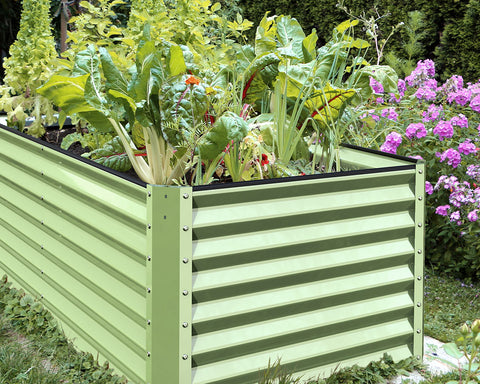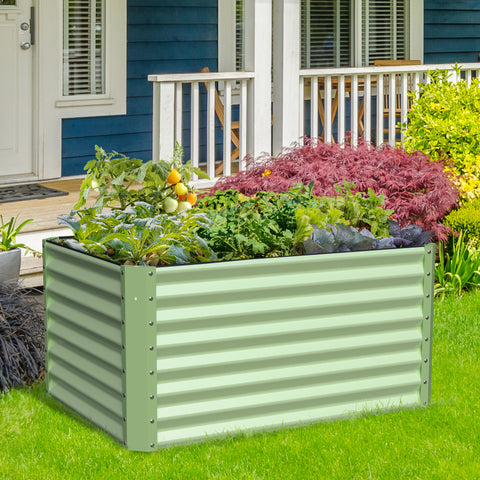Deficient or nutrient depleted soils will certainly perform poorly, making it difficult for your crops to produce during the growing season. By understanding how to make organic soil, you can grow amazing vegetable gardens without using any harmful substances or chemicals.The following content also has some reference value for raised garden beds.
How to make organic soil
If you want to make your own organic soil, you'll need a compost pile, a base material pile, and a garden space or structure. The following methods will help you turn ordinary soil into fertile organic soil.
Where to start - Organic soil starts with sand, clay, silt or loam. When making organic soil, look for your base from a garden area at a home improvement store, a quarry, a local construction site, or your yard (if you know chemical pesticides are not applied there). Store basic materials in a protected area until ready for use.

Note: If your purpose is to improve your existing soil, soil is your foundation.
As soil structure increases, the soil is able to absorb water faster and retain it better. The soil also became resistant to erosion by wind and rain. Compost is an excellent source of organic matter.
Compost pile - Your compost pile should consist of a variety of organic materials that can be decomposed. In fact, the bigger your range, the better your compost will be. Consider the following sources: Plants and grass clippings provide sugar for compost as they decompose. Materials such as leaves, hay, straw, bark and wood chips help conserve water and reduce weed growth when used as mulch. When added to your compost pile, this material breaks down into organic matter, adding nutrients to your compost. Organic waste in the kitchen. Examples include vegetable and fruit scraps or any material that can be broken down and does not contain chemical additives. Coffee grounds, eggshells, shredded newspaper, or cardboard also make good additions to the compost pile. Animal manure itself is rich in nutrients and partially decomposed. You can use this manure to add to your existing compost or create your own compost pile. Either way, this fertilizer should be composted before it reaches your garden.
Soil microbiome - Fertile soil is an ecosystem full of beneficial soil microbes. Bacteria, fungi and protozoa are important participants in soil microbial processes. Other important soil organisms include arthropods, earthworms, and some nematodes.
Tip: To increase soil microbes, keep adding compost, mulch, and plant cuttings to your compost pile and soil. By growing plants or cover crops, you provide organic material for microbes.

Build soil - If you're a container gardener, follow these steps to cultivate rich, nutrient-rich soil: First lay an inch-thick layer of compost on the bottom of the container, and add an inch-thick layer on top of the base material (sand, clay, silt, or loam). Mix the two layers roughly together and repeat the process until the soil rises above the edge of the container (the soil will settle). Water the soil deeply to encourage the formation of soil structure. Cover the container with organic mulch to retain soil moisture. Allow the soil to mature for at least two weeks before planting. In this process, adding earthworms will greatly help the soil
Tip: To keep your soil organic and biome alive, you need to avoid chemical/commercial pesticides. You can use homemade pesticides that are just as effective and easy to make.
In this article, you find information and tips on how to make organic fertile soil for your container garden or garden bed.
By adding organic matter to the soil properly, you can create a thriving ecosystem in the soil that promotes soil structure and healthy plant growth.
Ignore the organic needs of the soil, and it will ultimately not be able to provide water and nutrients for anything you want to grow.









